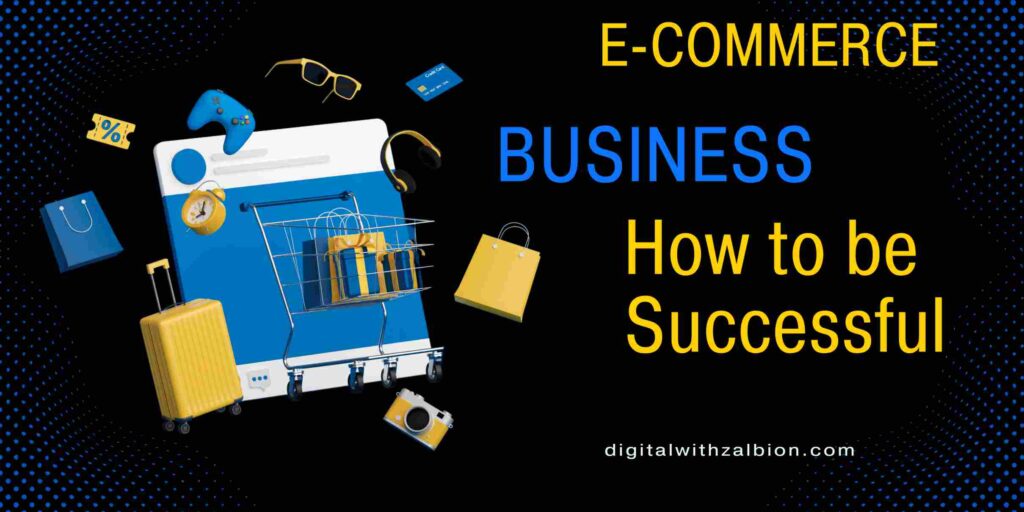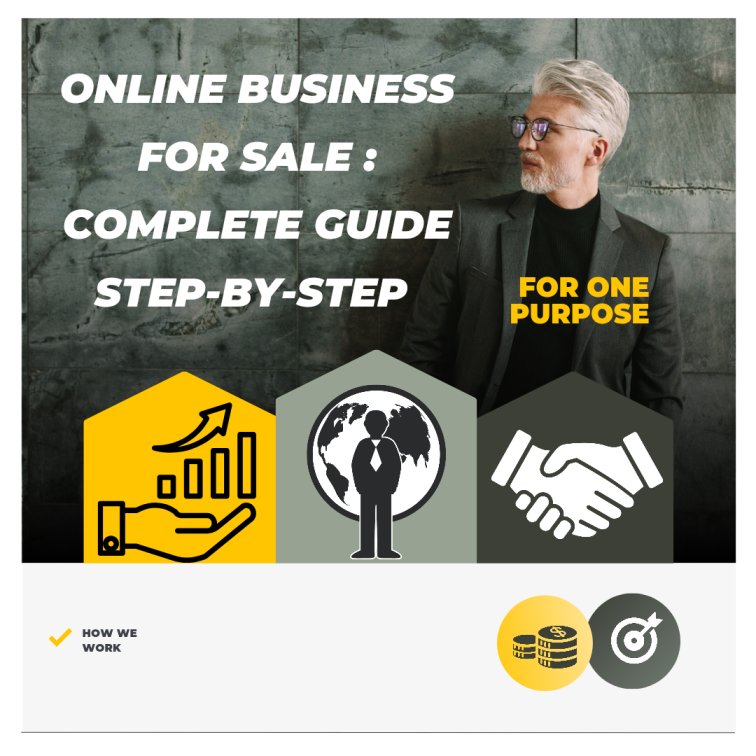Introductions
In this digital age, the internet revolutionizes how to do business; it provides new opportunities and challenges for entrepreneurs and established businesses. Launching an online store, using digital tools for small business growth, and other vast and ever-changing landscapes of online business, in this blog, we’ll discuss the important aspects of online business, eCommerce strategies, small business internet trends, and effective methods of making money online.

1. Know Online Business
An online business refers to all commercial activities done via the Internet. This is an expansive category, which includes not only eCommerce stores but also digital services, online consulting, and much more. First of all, the most significant advantage of an online business is that it can cater to the whole world without requiring a real presence in it. However, having a website is only the first step toward a successful online venture because strategic planning, market research, and adaptation to technological developments are involved.
Benefits of E-commerce Business
- Global Reach: Reaches customers from the entire world.
- Fewer Overheads: It costs less compared to the brick-and-mortar stores.
- Flexibility: Operations can be conducted from anywhere globally, as long as there is an internet connection.
- Scalability: The operations can be scaled up at any time depending on the demand for the products.
Disadvantages of the Online Business
- Market Saturation: There is high competition in popular niches and markets.
- Digital Marketing: Requires expertise in SEO, PPC, and social media.
- Cybersecurity: Protection against data breaches and online fraud

2. eCommerce Business: How to Be Successful
eCommerce is specifically defined as the sale of goods or services through electronic means. In other words, it is an undertaking of online business with its unique dynamics and strategies. Whether new or already optimizing an existing one, a wise eCommerce store owner needs knowledge of key strategies to achieve success.
Key eCommerce Strategies
- Select the Right Platform: A good eCommerce platform like Shopify, WooCommerce, or Magento is one of the most basic things that should be done. Each platform has its set of unique features and customization options, so select a platform that best suits your business needs.
- SEO Optimization: Ensuring that you implement successful SEO practices will increase the rank of your online store in search results, and thus, organic traffic will hit your site. Keep the focus on keyword research, on-page SEO, and high-quality content.
- User Experience: Your site will be user-friendly; that is, navigation will be intuitive, mobile responsiveness, and fast loading. A positive UX yields more conversion rates as well as consumer satisfaction.
- Digital Marketing: Use the various channels of digital marketing email marketing, social media, and PPC advertising, to reach out to potential customers for products or services that may be needed.
- Customer service: always ensure that one provides the best experience for customers, so live chat, responsive e-mail support, and easy return policies are maintained. Trust with customers increases loyalty and repeat business.
Rise in E-commerce Trends
- Artificial Intelligence (AI): AI-based tools can do so much more, such as making customized recommendations and running chatbots, as well as being capable of predicting customer behavior.
- Augmented Reality (AR): This adds the ability to see products in a consumer’s own space, thus enriching the experience and reducing returns.
- Subscription Models: More people are looking at subscription services as they offer convenience and recurring revenue.

3. Internet Utilization for Small Business Growth
The Internet is a powerful growth and expansion tool for small businesses mentioning just a few
- dimensions: digital marketing, online sales channels, and making use of the Internet at such a massive scale that levels the playing field between a small business and a large business.
Internet Strategy for Small Businesses
- Develop a Successful Website: Your website would be the first impression you create for your business in the minds of consumers. You will spend time, money, and effort on professional design, clear branding, and informative content.
- Local SEO: One type of optimization is Local SEO, where you focus your website to be visible in the search results for searches around your location. Claim your Google My Business listing, ask your customers to leave reviews, and generally be around on social media.
- Social Media Presence: Social media will connect with your audience, share updates on your products or services, and let the world know what you are doing. Use each platform’s unique audience.
- Content Marketing: Create valuable content that answers your target audience’s needs and interests. Blogging, videos, and infographics can drive traffic and position you as the authority in your field.
- Email Marketing: Create email lists and send campaigns targeted at nurturing leads, offering promotions, and informing your audience.
Resources for Small Business Owners
- Online Courses and Webinars: Many platforms offer courses on digital marketing, eCommerce, and business management.
- Networking Groups: Be a part of online forums and groups related to other small-scale business owners to gain the most recent insights.
- Tools and Software: Project management, CRM, and analytics tools are some of the investments that will speed up all operations manifolds.
Table of Contents

4. Successful Strategies for Online Money Making
This is the most recent list of money-making trends through the internet. More money can be generated through direct sales, passive money-making streams, or digital products. Some of the popular ways to make money online:
Popular Online Money-Making Methods
- Affiliate Marketing: Earn commissions by promoting products of other companies through selling to others. Just make sure you’re offering a product that fits within your niche along with of interest to your audience.
- Dropshipping: You can establish an online store without having to hold any inventory. Partner up with suppliers who take care of the order fulfillment as well as shipping, so you can focus on other matters like marketing and customer service.
- Freelancing: You can offer your skills and services to freelance platforms such as Upwork, Fiverr, or Freelancer. Some of the most popular freelance opportunities include writing, graphic design, and programming.
- Create and Sell Digital: Products You can create digital products, like eBooks, courses, or software, which generate passive income but can also scale well.
- Blogging and YouTube: Bloggers can monetize their blogs on YouTube, and you can earn money from your YouTube channel by using ads, sponsorships, and also through affiliate marketing. These require immense effort towards establishing a loyal audience by creating value and engaging with your readers or viewers.
Successful Online Money-Making Hints
- Select Your Niche: It’s time to think of your niche, which should be pertinent to your field and expertise. A well-defined niche helps you stand out from the rest and attract attention to it.
- Reach an audience: Use content marketing, social media, and email lists to grow your audience and build trust.
- Diversify your income streams: Relying on just one source of income is very risky. Explore multiple revenue streams for a more stable financial base.
- Stay updated: On the online money-making landscape and changes that take place within it. Stay updated on changes in the industry and adjust your tactics according to that.

5. Building a Personal Brand Online
A strong personal brand in today’s competitive space is the key to standing out and earning credibility when operating in a tight digital marketplace. Whether selling goods or services or informing people with content, building a personal brand represents who you are, what you stand for, and what makes you different than others.
Steps to Building a Strong Personal Brand
Define Your Unique Value Proposition (UVP) that makes you different; what skills, experiences, or insights do you bring that others do not?
- Consistent Online Presence: Ensure consistency in branding across each platform and across your website, all your social media profiles, and email communications. Stick to the same colors, logos, and style across your website and social media so everything feels connected and familiar to your audience.
- Content Creation: Share your expertise in the form of valuable content through blogging, social media posts, videos, or podcasts. Make valuable inputs and solutions for the audience, thereby helping you brand yourself as an authority in the niche.
- Connect with Your Audience: Connect with followers by responding to comments or participating in conversations related to your niche. Interaction breeds trust and loyalty with the audience.
Advantages of Personal Branding
- Higher Credibility: A personal brand increases one’s credibility and, therefore, offers customers a better reason to believe in his or her products or services.
- Networking: An effective personal brand can open doors for collaborations, partnerships, or other business opportunities.
- Long-term Recognition: A well-set personal brand will always make people realize and remember you even in a crowded market.

6. The Role of Automation in Online Business Growth
As your online business growth progresses, the role of automation plays an important part in allowing you to streamline operations and boost efficiency. Automation tools help manage repetitive tasks, free up time, and enable you to scale the business.
Parts of Your Business to Automate
- Marketing Automation: Email and social media campaigns and even automatic customer segmentation based on behavior is possible through various other tools like Mailchimp or HubSpot.
- Order Fulfillment-An automated: Inventory management system, order processing, and shipping alerts can ensure that the eCommerce business runs with minimal friction, and autoDS takes care of this for you.
- Customer Service: Entertain your customers throughout the day with 24/7 support by incorporating chatbots or AI-driven customer services. Automated FAQs, ticket systems, and live chat can fulfill them without requiring manual effort.
- Accounting and Invoicing: QuickBooks and Xero also automate tracking records, invoicing, and tax calculation to reduce calculation errors and time spent in bookkeeping.
Advantages of Business Automation
- Improved Efficiency: Automating will execute tasks quicker and better, thus improving the productivity of your business.
- Cost Savings: Automating certain processes within your company will reduce labor costs for high-impact activities from your business.
- Enhanced Customer Experience: Responses will be timely, orders will be filled rapidly, and campaigns will be customized to create higher customer satisfaction and retention.
Conclusion
The best opportunities for anyone interested in investing their time and energy are the online business, eCommerce, small business internet strategies, or even money making online. Once you understand the basics of each area, know which tools to use, and stay up with the latest trends, you will be on your way to building an online presence that will support your financial desires. Whether one is a budding entrepreneur or a seasoned business owner, the adaptation to the digital age has truly become the need of the hour in order to survive the cutthroat competition in today’s scenario.


